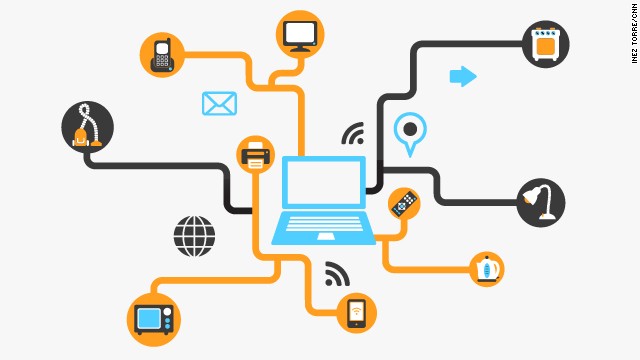-
Arren Soroko changed their profile picture 6 years, 2 months ago
-
Amanda M Rossetti wrote a new post on the site MIS 5212-Advanced Penetration Testing 6 years, 6 months ago
In a case of too stupid not to share Commonwealth Bank lost 12 million customers’ data including their financial histories from 2004 to 2014 but this wasn’t your normal breach. The magnetic tape backups just w […]
-
Amanda M Rossetti wrote a new post on the site MIS 5212-Advanced Penetration Testing 6 years, 8 months ago
I never considered that that a health crisis could also cause cyber security issues but this article makes a good point about why it occurs. With anything that causes the volume of what a user is asked to do to […]
-
Amanda M Rossetti wrote a new post on the site ITACS 5211: Introduction to Ethical Hacking 6 years, 11 months ago
Research from the European Banking Authority (EBA) says that the majority of EU banks believe their operational risks will increase. Many of them are pointing to to cyber risks and data security to explain why […]
-
Amanda M Rossetti wrote a new post on the site ITACS 5211: Introduction to Ethical Hacking 7 years ago
On the heels Deloitte’s security vulnerability coming to light another company large in the cyber security space reportedly suffers from lax cyber security themselves. The article explains that Accenture ha […]
-
Amanda,
The issue of having these big companies losing sensitive information is really scary. I think they have to be good examples to other organizations regarding securing data. After Equifax leakage, I won’t be surprise if Accenture confirm in the future of losing sensitive information that is related to this incident. I learned from other similar incidents that happened in the past (Example: Target breach in 2013) that most of these big institutions are not honest with their clients and show that their data is secured even if they get attacked.
Very nice article to learn from. -
Hello Amanda,
This article is quite interesting because it throws light on the fact how big companies can too struggle in protecting their sensitive information. The case of Accenture is quite surprising though, but many corporations ignore threats or instance of attacks and later struggle with breaches.
-
-
Amanda M Rossetti wrote a new post on the site ITACS 5211: Introduction to Ethical Hacking 7 years ago
Members of the European Union have drafted a document stating that cyber attacks by foreign nations could be considered an act of war. They say that members of the EU may respond to cyber attacks with […]
-
Amanda M Rossetti wrote a new post on the site ITACS 5211: Introduction to Ethical Hacking 7 years ago
Researchers at Check Point Research are warning that they have found a new Botnet, IoTroop. It users IoT devices similar to the Mirai botnet from last year that shut down the internet mostly for the eastern US, […]
-
Amanda,
I think the IoT is ripe for spreading infection. These devices are not built with security in mind, and are difficult to update / patch (if one is even available). The problem is that people don’t think it will ever happen to them. They think, “Why would anyone want to hack me?” but don’t realize they could be a launch point for complete internet shut down. They think they will never get hacked.
It is like driving a car. People, sometimes drive a bit crazy on the roads. They weave in and out of cars, switch multiple lanes at a time, and ride the car’s “butt” in front of them. They are aware of the risks, but may not be fully aware of the consequences. The reckless driver may end up in an accident, causing a long traffic jam and affecting other drivers, or even cause their own death.
Well… A user driving on the internet, who isn’t very secure can cause other users to suffer or even destroy their own system.
-
-
Amanda M Rossetti wrote a new post on the site ITACS 5211: Introduction to Ethical Hacking 7 years ago
My article this week discusses the business risks associated with cyber security. It lists many statistics about how many organizations are attacked and the amount of money and reputation lost as a result of these […]
-
Amanda,
I do believe that cyber attacks are not only an IT problem but it can be a big business problem. A good example of that, when Target’s customers credit cards database attacked in 2013, not the only IT department was influenced because it has to work on securing the organization system, but the company lost so much business since the customers stop trusting using their credit cards in the stores or online.
Very interesting article that aware so many companies don’t invert on building a strong IT security department to start soon to do so.
-
-
Amanda M Rossetti wrote a new post on the site ITACS 5211: Introduction to Ethical Hacking 7 years ago
My article discusses the 5 worst cybersecurity habits. The 5 it identifies are: having a lax attitude, not protecting their email, clicking hyperlinks in emails, poor password practices, and not backup up data. […]
-
Hi Amanda:
I think this article is fascinating and try to think like hackers is the best way to prevent any cyber attack
-
Amanda – That’s an interesting article and definitely a good summary by you. It gives a lot of information about common habits when dealing with cybersecurity. Out of all the 5, I was personally able to relate No Data Backups as one of the worst habits I could have because I sometimes fail to do data backups on a constant basis. I wonder what would happen when one wants to recover all the uncorrupted data back. I find this quite interesting and there is a lot to learn from Lax attitude as well, something that I usually find across many people.
-
-
Amanda M Rossetti wrote a new post on the site MIS4596 – Section 3 Spring 2015 9 years, 6 months ago

https://www.linkedin.com/pulse/big-idea-2015-coming-disruption-walter
Walter Isaacson thinks that the new innovation of micropayments could save journalism. The idea of micropayments is that you would use your […] -
Amanda M Rossetti wrote a new post on the site MIS4596 – Section 3 Spring 2015 9 years, 6 months ago

http://smallbusiness.chron.com/pros-cons-technology-business-today-2709.html
Chris Joseph from Demand Media identified some positives and negatives of how engrained IT has become into business today.
He said […] -
Amanda M Rossetti wrote a new post on the site MIS4596 – Section 3 Spring 2015 9 years, 6 months ago

https://www.salesforce.com/blog/2012/07/does-customer-service-ever-go-too-far.html
Corinne Roberts from Salesforce wrote an article on what aspects of customer service turn customers off of buying products. She […] -
Brittany M Cougle wrote a new post on the site MIS4596 – Section 3 Spring 2015 9 years, 6 months ago
In the U.S more than $2.5 trillion flows through car-related industries every year. This article states that where this money will flow in the future depends on whether cars will require human drivers. The big […]
-
Brittany M Cougle wrote a new post on the site MIS4596 – Section 3 Spring 2015 9 years, 6 months ago

Target partnered with Lilly Pulitzer, a luxury clothing line, and created a collection that would sell at a fraction of the cost of regular Lilly Pulitzer items. The demand for the product line was incredible […] -
Arren Soroko wrote a new post on the site MIS4596 – Section 3 Spring 2015 9 years, 6 months ago
In this UX Magazine article, author Avi Itzkovitch disucusses how the Internet of Things can be used to create disruptive innovations. The main point of this article talks about how connecting a device or […]
-
Dominic P Lyate wrote a new post on the site MIS4596 – Section 3 Spring 2015 9 years, 6 months ago
In this article by Kara Swisher of Re/code, Color, a new at-home breast and ovarian cancer-risk screening company, is at the center of attention. The company produces $249 physician-ordered kits that screen […]
-
I think this is a great idea because so many women choose not to get screened for breast and ovarian cancer because they do not want to visit a doctor’s office. These kits would make it much easier for women to get tested and will hopefully decrease the number of deaths from breast and ovarian cancer. I do think there are some risks involved with sending genetic information through the mail or posting online and this will turn some people away from the kits. However, for me, the benefits outweigh the risks and I would be interested to see if similar kits could be designed to test for other types of cancer or disease.
-
-
Arren Soroko wrote a new post on the site MIS4596 – Section 3 Spring 2015 9 years, 6 months ago
In this article entitled Integrative Thinking, author Graham Douglas explores the differences between critical thinking and integrative thinking and addresses how we are programmed to think critically because […]
-
I think some of the points Douglas makes are interesting, especially the parts about making a “narrative” for connecting wonderings, ideas, etc. I think the narrative helps give some context to general terms like “integrative thinking.” However, I have an issue with the first point above. Douglas argues that we’ve been conditioned by our education to break things into parts–but then suggests that we “memorize” categories that help trigger connections. I think that methodology sounds really similar to what our education teaches us–breaking things down, analyzing them, making connections, etc. I think staying away from breaking things down helps build a more holistic view of each problem.
-
I too posted an article on integrative thinking and do agree with what Douglas. I do think that our education conditioned us to find a problem, break it down, analyze, and find one solution for the problem.I thiink it’s okay to continue to break problems down, but we shouldn’t focus only one part of the problem. We should focus on the entire problem. I also believe that every person has the potential to become an integrative thinker. There are those rare people, who are integrative thinkers already, but I also think one can practice to become an integrative thinker. The more one practices and puts himself/herself in these situations, the easier it will be to become an integrative thinker.
-
-
Dominic P Lyate wrote a new post on the site MIS4596 – Section 3 Spring 2015 9 years, 6 months ago
 In this article by Mark Suster, an entrepreneur, tips on how to “not suck” at presenting to a group/large audience are discussed. A few of the points stood out to me and I think they really apply for our final […]
In this article by Mark Suster, an entrepreneur, tips on how to “not suck” at presenting to a group/large audience are discussed. A few of the points stood out to me and I think they really apply for our final […]-
I do agree with Mark’s points and i agree with your comment about its common sense but most of us don’t practice as much due to nerves. I think when presentation time comes and your nervous, it helps to take a deep breath and take your time in what you are trying to say. Its important to practice, practice, practice because sometimes someone may get on stage to present and they will forget everything they had to talk about. Sometimes people lose their train of thought due to nerves.
-
I totally agree– I think practice is a huge takeaway. I think the amount of practice needed varies person to person, but in general, practice helps build a base “flow” that can be altered on the fly if need be.
-
-
I would have to agree when you both say that practice is key to giving a good presentation. However, I think too much practice can be negative to your presentation as well. When you practice too much, you tend to memorize every word that you say and typically ends up being scripted even if that was not the intention. When it becomes “scripted” based of memorization, if you have a hiccup during your presentation, it can throw it completely for a loop because you then start to worry and think too much about what you need to say next. I think that the key is having an extensive knowledge about the topic of presentation so that, even if you have a brain fart, you dont worry as much because you know the topic being discussed and can essentially wing it. Knowledge breeds confidence
-
I had a similar post recently in regards to successful presentations and the same tips were discussed. As stated in previous comments, I really believe a lot of these are common sense, but these things are easier said than done. For the most part, once you get in front of a crowd your concentration on these things tends to fade when the nerves arise. That’s why the most important tip is to practice over and over. You can’t practice too much.
-
I agree with all of the comments above, especially the one about the key points in this article being common sense. But depending on the type of person you are it may be more difficult to follow through with these tips. I think that practicing plays an important role in a presentation, but like Arren said, too much practice can be negative. This first takeaway of “showing some energy” can be difficult when a presentation sounds scripted.I think people should practice enough to the point where they feel comfortable with the material they are presenting because even if you get distracted it’s easier to remember where you left off. In addition, it’s very difficult to keep your audience engaged when they have a number of distractions at their fingertips. That’s why I think that it is important to tell a story throughout your presentation. It gives the audience an opportunity to relate with the persona or even put himself/herself in that situation. By telling a story, the audience is more likely to pay attention to your presentation.
-
I would also agree that the points seem to be common sense but many times people do not actually follow these guidelines in their presentations. I think the most interesting point made was to create two decks with one being very high-level and the other having more details to distribute after the presentation. I think this is a great idea and could definitely be used in our future careers. As much as I think too much text on a PowerPoint is overwhelming and distracting, I know that people are not always listening to the presentation, so by sending a detailed PowerPoint after the meeting you can make sure that people have all of the information that you presented.
-
-
Arren Soroko wrote a new post on the site MIS4596 – Section 3 Spring 2015 9 years, 6 months ago
-
One example of disruptive/ramifications that can be caused by the developing countries is job security. There is already a huge disruption in jobs like Accounting and Lawyers. These jobs are being outsourced to places like india where they are charging much lower rates with the exact same quality.
-
I feel as though the internet becoming more of a norm in developing countries is a positive thing. Instead of teachers, doctor’s and volunteers visiting these countries to help them better sustain themselves, the internet can be brought in to help countries create jobs, educate themselves and slowly help build their country.
-
The internet has been a great boon to developing countries. Recently we saw mass rallies being organized over social media. Rallies that toppled governments, and it is still going on. It has also allowed some developing countries to really shoot ahead in certain areas. If you look at some African countries for example that you will see that mobile banking, particularly mobile to mobile money transfers is something that has been used for awhile now. A technology that is only recently getting put to use here in the U.S is already old hat. This is a great opportunity for these countries since they can essential skip many of the missteps due to development and this is mainly thanks the the net.
-
-
Arren Soroko wrote a new post on the site MIS4596 – Section 3 Spring 2015 9 years, 6 months ago

Disruptive Innovation and Education
In this Forbes article, author Michael Horn talks about his interaction with Clay Christensen and how they used disruptive innovation to suggest ways for public schools to innovate. Horn states that the education system that we have today is, in many ways, built as a sorting system. “Those students who can’t keep up with the pace are sorted out at various intervals – an arrangement that worked fine for many in the past, but in today’s knowledge economy is no longer OK.” Horn suggested that online education is a way for public schools to cater to the individual needs that each student has instead of treating them all as if they are exactly the same. Horn also states that online education could also disrupt higher education. He states that it could severely affect some institutes a lot more than others but the ones that aren’t affected that much could adopt it as sustained innovation. Do you think that online education is more disruptive towards k-12 learning or higher education? Do you think that this could be the future of learning? Will it affect any other industries?
-
I feel as though it could disrupt both. k-12 education needs a disruption like this, catering to individual children’s needs and learning abilities so they do not get pushed through school without really learning the fundamentals of early education. A child does need to socialize however so combining a mix of online education and physical education would be a perfect fit for youth education.
When it comes to higher education, a disruption is already happening quickly. Some of the most talented people in the technology industry are self taught. In year to come, a degree may not be needed if a person can learn how any type of information they desire through the internet. -
I think that it is more disruptive towards k-12 learning. I do agree with Angela on a child needing to socialize, especially at a young age. That’s why I would wait and offer students online classes when they reach middle school. In addition, I would make the online classes completely optional allowing for both traditional and online classes. I would make it optional because some students might have a hard time adapting to online classes, which could potentially lower their grades. Online education is already a part of higher education and there are students who incorporate that into their schedules and others who only take online classes. I think it would bring more awareness to other online learning websites like Blackboard or Lynda.com. This could potentially harm the textbook publishers because students would use e-books instead.
-
- Load More
Connect and innovate with an elite information systems program
Footer
MANAGEMENT INFORMATION SYSTEMS
Fox School of Business
Temple University
210 Speakman Hall
1810 N. 13th Street
Philadelphia, PA 19122





